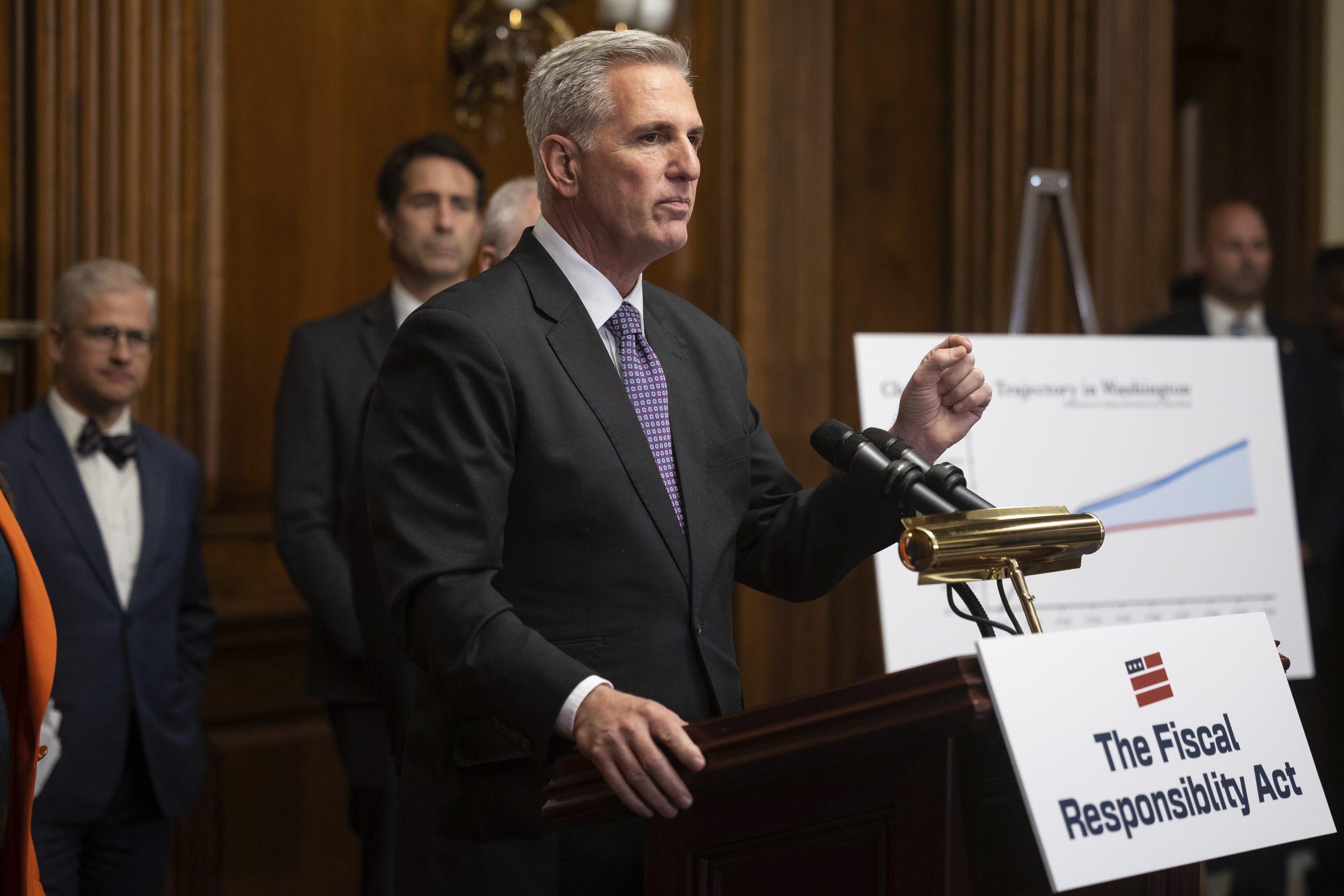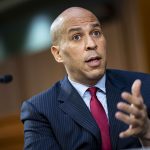The House’s conservative hardliners aren’t done exacting revenge on GOP leaders for what they see as Speaker Kevin McCarthy’s broken promises during Washington’s debt drama.
A band of roughly a dozen firebrands, mostly in the Trump-aligned Freedom Caucus, are now working to derail senior Republicans’ plans to pass even widely popular party priorities on the floor this week.
And they’re preparing to make trouble beyond choking some floor action. More broadly, McCarthy’s right flank is trying to reassert control over a large swath of the GOP agenda. Already, blocs of conservatives are pushing Republican leaders to ramp up attacks against Biden administration officials — while also pushing for spending cuts this fall that would essentially renege on last week’s debt deal.
Simply put, conservatives who feel they got rolled by McCarthy’s deal with President Joe Biden are now telling him: Not again. It’s ground the House floor to a halt and returned GOP leaders to a familiar spot, forced to assuage hard-right critics who make up a tiny minority of their five-seat majority.
“Kevin blew up the unity of the conference last week on the debt ceiling deal,” said hardliner Rep. Dan Bishop (R-N.C.). He complained about McCarthy swapping “one coalition partner for another” by getting Democratic support for the debt bill and called for a new agreement in writing that would govern how the House GOP would run the chamber going forward.
Putting it more directly, Rep. Matt Gaetz (R-Fla.) tweeted: “House Leadership couldn’t Hold the Line. Now we Hold the Floor.”
McCarthy and his leadership team are still working to reach a truce with the members who are refusing to allow floor action — delivering a humiliating blow to the speaker days after a debt agreement that his allies considered a huge victory. As of lunchtime Wednesday, Republicans still had no idea when leadership could begin advancing a seemingly straightforward bill that rolls back Biden regulations on gas stoves, after conservatives tanked what’s known as a rule vote that would’ve advanced the legislation Tuesday.
“We’re still having some conversations,” said Majority Leader Steve Scalise (R-La.), noting that leadership had already had meetings with some of those conservative hardliners and had others planned later in the day.
It’s a far cry from what McCarthy’s camp expected in the days following a surprisingly low-drama debt deal vote. But just as McCarthy and his leadership team took their victory lap in a closed-door meeting Tuesday — touting the GOP’s wins in the debt package — their right wing quickly dashed their hopes for pivoting to new parts of their agenda this week.
Rep. Patrick McHenry (R-N.C.), a McCarthy confidante and major player in the debt talks, said Tuesday that this fall’s looming spending fight was a “component” of the standoff. He tried to strike an upbeat note, hoping that a broader “airing” of concerns within the conference might “resolve internal tensions.”
“In a narrow majority, individual members have an outsized power. And it’s not about an individual group — because the members that voted no on this rule, it’s not 100 percent the Freedom Caucus,” McHenry said. “Five members can have a really powerful role in this House.”
The conservative blockade also eroded efforts by McCarthy to tamp down the potential for one member on his right flank to force a vote on ousting the speaker, an outcome that leadership allies have repeatedly dismissed. Nonetheless, Bishop lobbed a short-lived threat to oust the speaker last week.
The North Carolina Republican and others on the right aren’t specifically vowing to deploy that so-called nuclear option — yet.
Instead, they made clear this week that they have other ways of making leadership pay in an effort to, in Bishop’s words, “recover the unity” Republicans had felt before the debt crisis.
What that means is less clear. Bishop said that “what happens next depends on how leadership is inclined to reciprocate.”
The roughly dozen conservatives who tanked their own party’s gas stoves bill Tuesday — grinding the floor to a halt — have refused to say publicly what specific concessions they’re seeking in return for allowing McCarthy to bring legislation to the floor again. They have called for reopening the discussion about the deals they cut with McCarthy during the speaker’s race, most of which were made as informal handshake agreements — to the frustration of some of their GOP colleagues.
Some in the conference have privately urged GOP leaders to send lawmakers home to cool off, fearing that the group of rebels is unlikely to relent this week.
But others are eager for the House to remain in session. The Oversight Committee is slated to vote to hold FBI Director Christopher Wray in contempt Thursday, setting the stage for a House floor vote as soon as next week.
Wray and Department of Homeland Security Secretary Alejandro Mayorkas will also testify before the House Judiciary Committee next month — appearances first reported by POLITICO — giving McCarthy’s right-flank the chance to grill some of their biggest targets. The hearings are likely to be a release valve amid pent-up frustration about the lack of more punitive actions like impeachment, a bar GOP leaders aren’t sure they can clear given their slim majority.
And next week, GOP leaders could have an entirely different headache: Some of their moderate members are raising concerns with a bill related to Congress’ ban on federal funding for abortions, known as the Hyde Amendment. GOP leaders are expected to hold a meeting on that topic later Wednesday with a small group of members, according to three people familiar with the discussions.
Even before Tuesday’s unexpected revolt on the floor, several House conservatives were signaling that they planned to force McCarthy and his leadership team to essentially revisit the spending component of his deal with Biden.
The Freedom Caucus has discussed strategy on this fall’s government spending bills, as well as their soon-to-be-released tax bill and an aspirational GOP budget. But their biggest focus, they say, is on federal funding.
“That’s the game. That’s the challenge,” said Rep. Ralph Norman (R-S.C.), adding that McCarthy had pledged “a different” approach to spending bills.
Those Freedom Caucus members, including some who sit on the House appropriations panel, have pushed their leadership to set government funding levels below what McCarthy and the White House agreed to as part of the debt bill. If it doesn’t happen, they warn there won’t be enough GOP votes to carry their own party’s spending bills on the floor this year.
“Republican leadership has not taken reckless spending or reviewing these programs seriously,” Rep. Ken Buck (R-Colo.) said in a statement Wednesday. “Promises were made earlier this year regarding spending; I expect those commitments to be kept.”
While a final decision on the GOP’s funding figure hasn’t been made, senior Republicans privately expect that their original plans will end up close to the conservative demands.
House Republicans were already drafting their government funding bills to lower levels before the debt deal, and GOP lawmakers tasked with drafting those spending measures are signaling they expect to plow forward with their original plan.
“I’m comfortable going under those caps. I would expect it could be lower,” said Rep. Tom Cole (R-Okla.), who noted that Republicans would use whichever number “helps us get the bill passed” without Democratic help on the floor.
“We have to pass them with primarily Republican votes in a very narrow majority,” Cole said.
Fellow appropriator Rep. Michael Cloud (R-Texas), a Freedom Caucus member, added that the committee was “working toward that already.”

















